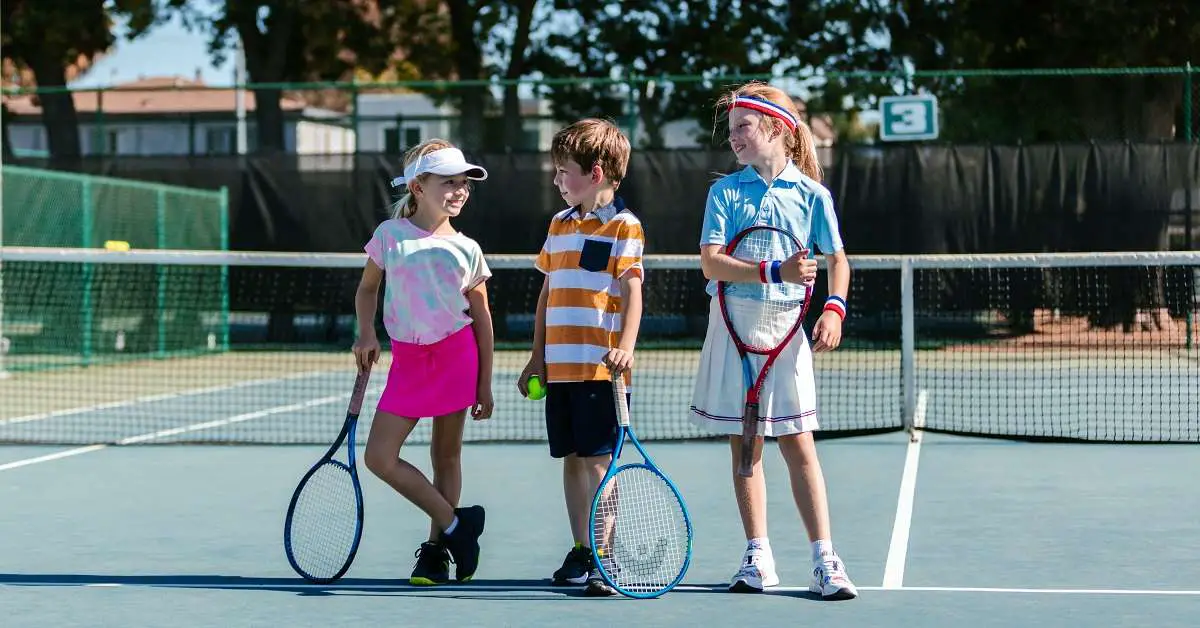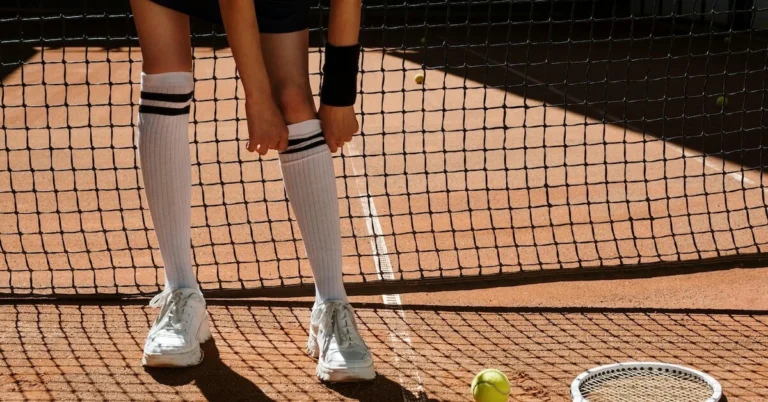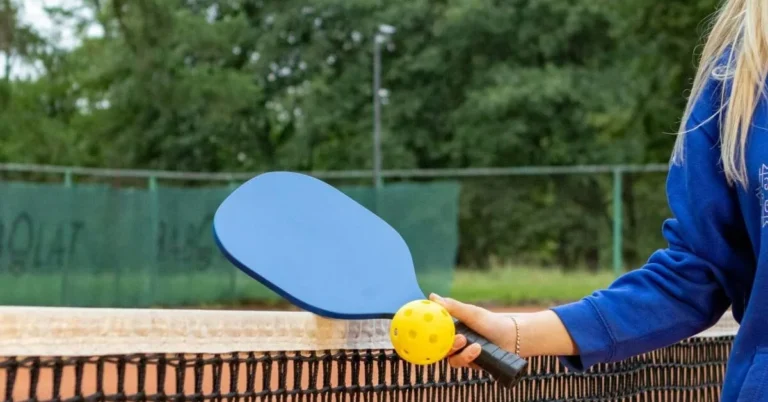If you’re a parent of a child who loves tennis, you know how important it is to support their dreams and aspirations. Tennis can be a great way for children to develop their physical abilities, mental toughness, and social skills. However, being a supportive tennis parent can be challenging, especially if you’re not familiar with the sport or if you have different expectations than your child. In this article, we will explore some tips and strategies for how to support your child’s tennis dreams and help them achieve their goals.
One of the most important things you can do as a tennis parent is to provide emotional support for your child. Tennis can be a competitive and stressful sport, and your child may experience disappointment, frustration, or anxiety at times. It’s essential to be there for them, listen to their concerns, and offer encouragement and reassurance. Avoid criticizing or pressuring your child, as this can undermine their confidence and enjoyment of the sport. Instead, focus on building a positive and supportive relationship with your child, both on and off the court.
Understanding Tennis and Parenting
As a tennis parent, you play a crucial role in helping your child succeed in tennis. Tennis is an individual sport that requires discipline, perseverance, and hard work. It is a great way for your child to stay active, develop physical skills, and learn valuable life lessons such as teamwork and sportsmanship.
When it comes to tennis and parenting, it’s important to strike a balance between supporting your child’s dreams and not putting too much pressure on them. Remember that your child’s tennis journey is their own, and it’s important to let them take ownership of their development.
20 Short Tips for Tennis Parenting
As a tennis parent, you play a crucial role in helping your child succeed on the court. Here are 20 short tips to help you support your child’s tennis dreams:
- Encourage your child to have fun and enjoy the game.
- Don’t put too much pressure on your child to win.
- Focus on your child’s effort and progress, not just the results.
- Be supportive and positive, even when your child loses.
- Don’t criticize your child’s mistakes or performance.
- Don’t compare your child to other players.
- Don’t interfere with coaching or try to coach your child yourself.
- Let your child take ownership of their own tennis journey.
- Help your child set realistic goals and work towards them.
- Teach your child good sportsmanship and respect for opponents.
- Make sure your child has the right equipment and clothing.
- Ensure your child stays hydrated and eats a healthy diet.
- Help your child manage their time effectively to balance tennis and schoolwork.
- Attend your child’s matches and be their biggest cheerleader.
- Don’t argue with officials or other tennis parents.
- Help your child learn from losses and mistakes.
- Encourage your child to try new things and take risks.
- Don’t force your child to play tennis if they don’t enjoy it.
- Celebrate your child’s successes, big or small.
- Remember that your child’s happiness and well-being are more important than their tennis achievements.
By following these tips, you can help your child develop a love for the game and reach their full potential on and off the court.
The Role of Parents in Child’s Tennis Journey
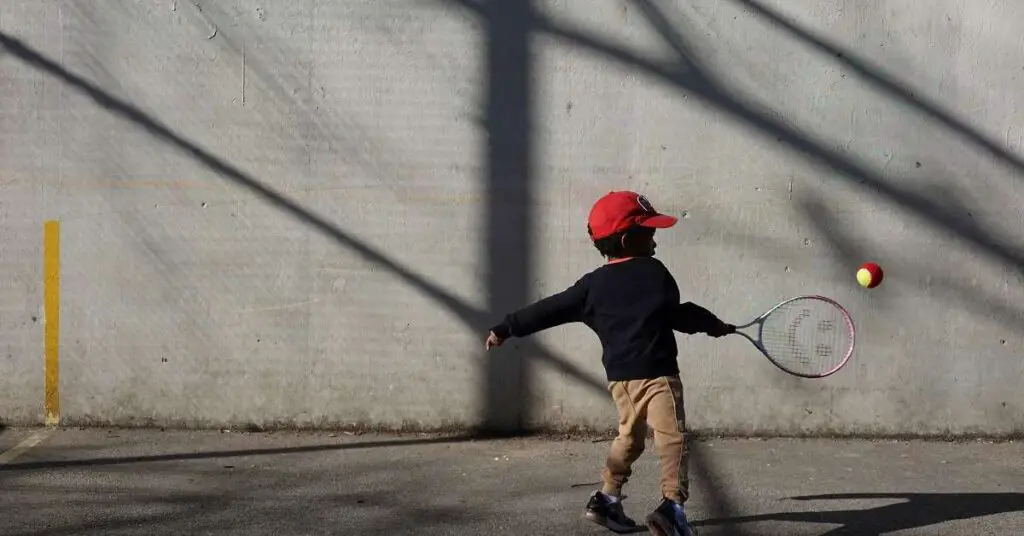
As a parent of a young tennis player, you play a pivotal role in your child’s tennis journey. Your support and guidance can make all the difference in their development as a sportsman. In this section, we will discuss the importance of parents in a child’s tennis journey.
First and foremost, it’s essential to understand that your child’s tennis journey is theirs. As a tennis parent, your role is to support and encourage them, not to live vicariously through their achievements. Your child’s performance should not be a reflection of your own success or failure. Instead, focus on helping them develop a love for the sport and a growth mindset.
One of the most critical aspects of your role as a tennis parent is to create a positive and supportive environment for your child. This means providing emotional support and encouragement, especially during difficult times. Avoid criticizing poor outcomes or pressuring your child to perform. Instead, focus on building their self-esteem and helping them develop a positive attitude towards the sport.
Another essential aspect of your role as a tennis parent is to provide practical support for your child’s tennis journey. This includes creating a training plan that aligns with their long-term goals, including squad training, practice, and private lessons. You can also help your child navigate the USTA Player Development’s Junior Tennis Pathway, which provides a framework for player development in youth tennis.
Finally, it’s important to remember that your child’s tennis journey is a marathon, not a sprint. It takes time, dedication, and hard work to develop as a player.
Nurturing Your Child’s Talent and Passion
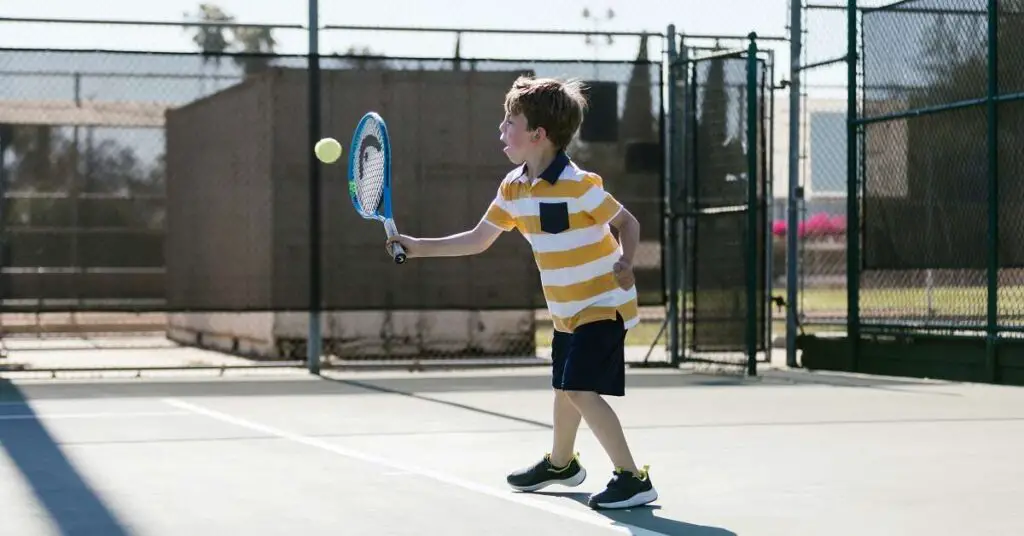
Nurturing your child’s talent and passion for tennis is crucial to their success on the court. As a tennis parent, you can play a vital role in helping your child develop their skills, mindset, and overall love for the game. Here are some tips to help you nurture your child’s talent and passion for tennis:
Encourage Effort and Dedication
Tennis requires a lot of hard work, effort, and dedication. Encourage your child to put in the time and effort needed to improve their skills. Praise their hard work and dedication, regardless of the outcome of their matches. This will help your child develop a growth mindset and a love for the game.
Emphasize the Importance of Practice
Practice is essential to improving your child’s tennis skills. Encourage your child to practice regularly, and make sure they have access to the necessary equipment and facilities. You can also help your child set goals for their practice sessions and track their progress over time.
Provide Emotional Support
Tennis can be a challenging and stressful sport, especially for young players. Provide emotional support to your child by being there for them when they need you. Encourage them to talk about their feelings and concerns, and help them develop coping strategies for dealing with stress and anxiety.
Foster a Love for the Game
Fostering a love for the game is essential to your child’s long-term success in tennis. Make sure your child is having fun and enjoying themselves on the court. Encourage them to explore different aspects of the game, such as strategy, technique, and mental toughness.
Recognize and Develop Your Child’s Talent
Every child has unique talents and abilities. Recognize and develop your child’s talent by providing them with opportunities to play and compete at their level. Consider hiring a coach or enrolling your child in a tennis academy to help them develop their skills and reach their full potential.
Creating a Positive Environment for Tennis Learning
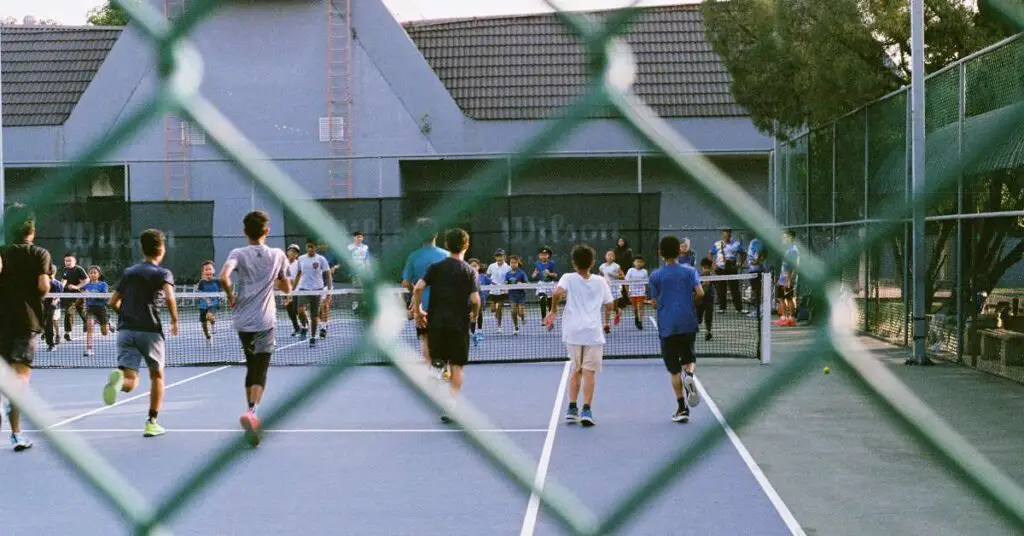
As a tennis parent, you play a crucial role in creating a positive environment for your child’s tennis learning. A positive experience is essential for your child to enjoy the sport, have fun, and develop a love for it. Here are some ways you can create a positive environment for your child’s tennis learning:
1. Encourage Fun and Enjoyment
Tennis is a fun and exciting sport, and it’s important to encourage your child to have fun and enjoy the experience. Help your child see the fun in the sport and enjoy playing tennis. Celebrate their successes, no matter how small, and encourage them to keep trying.
2. Use Positive Reinforcement
Positive reinforcement is a powerful tool to encourage your child’s tennis learning. Praise your child for their efforts, not just their successes. Encourage them to keep trying, and let them know that you are proud of them. Avoid negative feedback, as it can discourage your child and make them feel like they are not good enough.
3. Create a Supportive Environment
Creating a supportive environment is essential for your child’s tennis learning. Be supportive of your child’s goals, and help them achieve them. Encourage them to practice, but also be understanding if they need a break. Create a safe and supportive space for your child to learn and grow.
4. Focus on Learning
Tennis is a sport that requires a lot of learning, and it’s important to focus on the learning process. Encourage your child to learn from their mistakes and use them as an opportunity to grow. Help them set realistic goals and work towards achieving them.
5. Be a Role Model
As a tennis parent, you are a role model for your child. Show them how to be a good sport, and how to handle both success and failure with grace. Be positive and supportive, and show them that you are proud of them no matter what.
The Importance of Health and Wellness in Tennis
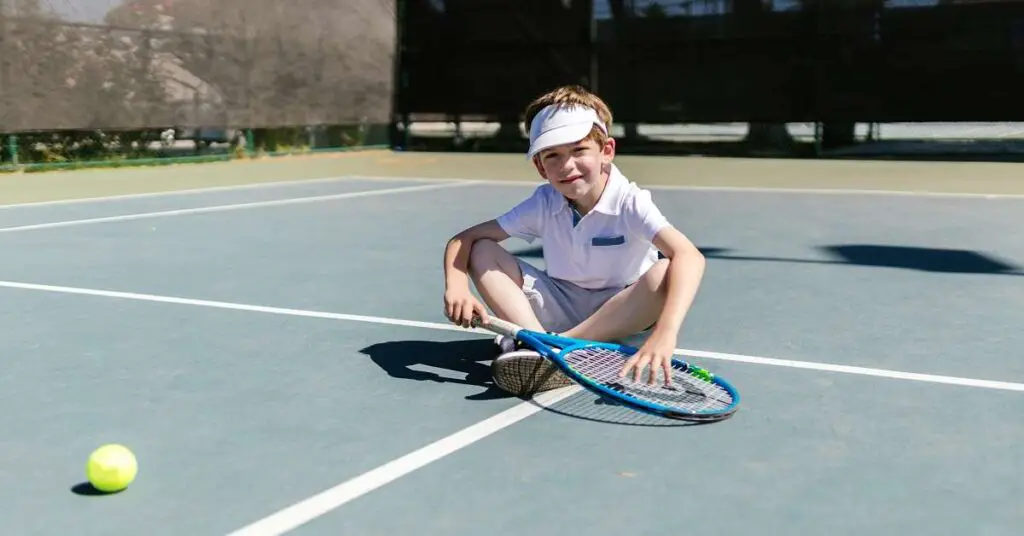
As a tennis parent, you want your child to excel in tennis, but it’s essential to remember that health and wellness are crucial components of athletic success. Tennis requires strength, endurance, and agility, and a healthy mind and body are necessary to achieve optimal performance.
Here are some reasons why health and wellness are crucial in tennis:
Physical Health
Tennis is a physically demanding sport that requires a lot of energy and stamina. It’s essential to ensure that your child is in good physical health to prevent injuries and to perform well on the court. Encourage your child to maintain a healthy diet and get enough sleep to support their physical health. Also, make sure they’re doing exercises that improve their strength, flexibility, and balance.
Mental Health
Tennis can be mentally challenging, and it’s crucial to support your child’s mental health to help them deal with the pressure and stress of the game. Encourage your child to practice mindfulness techniques, such as deep breathing and visualization, to help them stay calm and focused. Also, make sure they’re taking breaks and not overtraining, as this can lead to burnout and mental exhaustion.
Wellness
Tennis is not just about physical and mental health; it’s also about overall wellness. Encourage your child to take care of their emotional and social well-being by spending time with friends and family, pursuing hobbies and interests outside of tennis, and maintaining a healthy work-life balance. This will help them feel more fulfilled and motivated both on and off the court.
Understanding the Role of a Tennis Coach
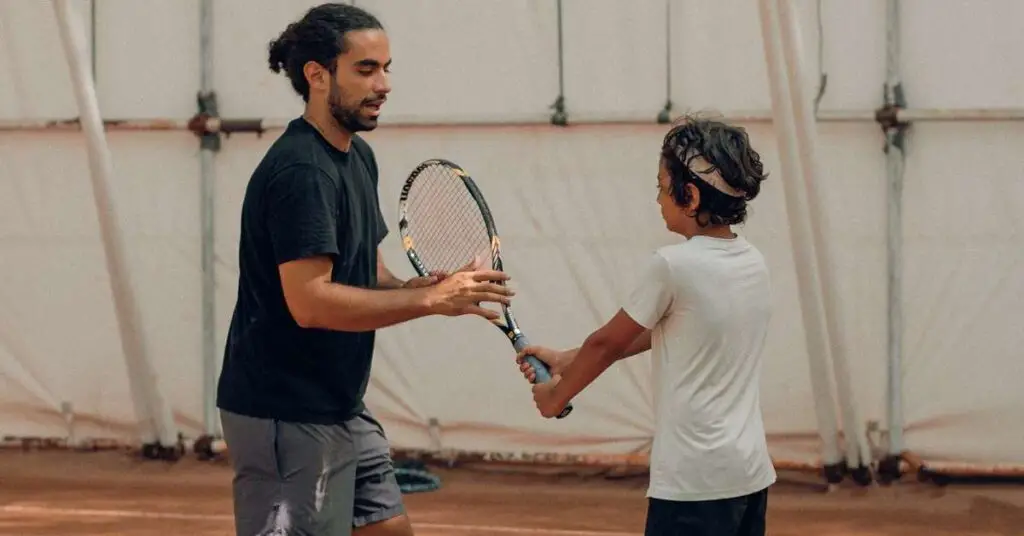
As a tennis parent of a junior player, it’s important to understand the role of a tennis coach in your child’s development. A tennis coach is a professional who provides guidance, instruction, and feedback to your child as they learn and grow in the sport. They play a crucial role in helping your child reach their full potential, both on and off the court.
One of the most important aspects of a coach’s role is their relationship with your child. A good coach will work to build a positive and supportive relationship with your child, helping them to feel comfortable and confident on the court. They should also be able to communicate effectively with your child, providing clear and constructive feedback that helps them improve their skills.
Another key aspect of a coach’s role is their ability to provide technical instruction. A good coach should have a deep understanding of the mechanics of the game, and be able to teach your child the proper techniques and strategies needed to succeed. They should also be able to tailor their instruction to your child’s individual strengths and weaknesses, helping them to improve in areas where they need it most.
Finally, a coach should also be able to provide guidance and support off the court. This may include advice on nutrition, fitness, and mental preparation, as well as guidance on how to balance tennis with other aspects of your child’s life. A good coach should be invested in your child’s overall well-being, and work to support them in all aspects of their life.
The Value of Sportsmanship and Character in Tennis
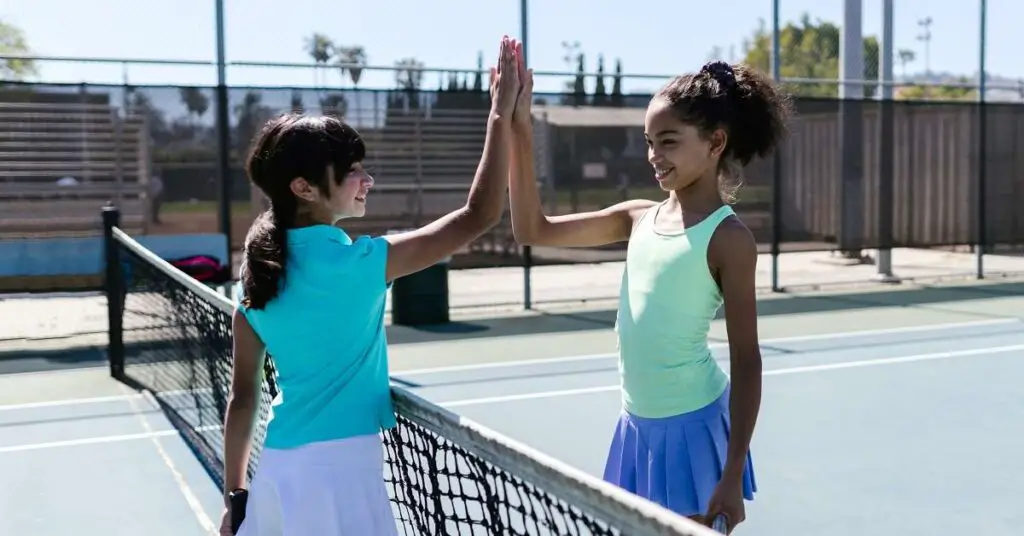
As a tennis parent, you want your child to succeed in tennis, but winning should not be the only goal. It is equally important to instill good sportsmanship and character in your child. Tennis is a sport that emphasizes fair play and polite behavior, and it is up to parents to reinforce these values.
Teaching your child the importance of sportsmanship means encouraging them to play with integrity, respect their opponents, and follow the rules of the game. It also means teaching them how to handle both winning and losing with grace. By modeling these behaviors yourself and praising your child when they exhibit them, you can help your child develop a strong sense of sportsmanship.
In addition to sportsmanship, character is also an important aspect of tennis. Tennis requires discipline, accountability, and a positive mindset towards others. As a tennis parent, you can help your child develop these traits by setting clear expectations and boundaries, and by encouraging them to take responsibility for their actions.
Values such as honesty, respect, and perseverance are also essential in tennis. By emphasizing these values and modeling them yourself, you can help your child build a strong character that will serve them well both on and off the court.
Supporting Your Child’s Performance Goals

As a tennis parent, it’s important to support your child’s performance goals in tennis. This means setting realistic expectations and providing the necessary resources to help them achieve their goals. Here are some tips on how to do this effectively:
Set Realistic Goals
It’s important to set realistic goals for your child’s performance in tennis. This means taking into account their skill level, age, and experience. Setting unrealistic goals can lead to frustration and disappointment. Instead, focus on setting achievable goals that will help your child progress and improve their game.
Monitor Progress
Monitoring your child’s progress is important to ensure they are on track to achieving their goals. Keep track of their performance in matches and practice sessions. This will help you identify areas where they need to improve and provide them with the necessary support.
Provide Adequate Preparation
Preparing for matches and tournaments is crucial for your child’s performance. Make sure they have the necessary equipment, such as a properly strung racket, comfortable shoes, and appropriate clothing. Additionally, ensure they have access to proper training and coaching to help them develop their skills.
Encourage Healthy Competition
Encouraging your child to compete in tennis can help them develop their skills and gain confidence. However, it’s important to ensure that the competition is healthy and not overly stressful. Encourage your child to focus on their own performance rather than comparing themselves to others.
Celebrate Achievements
Celebrating your child’s achievements in tennis can help boost their confidence and motivation. This can be as simple as congratulating them after a match or tournament, or treating them to their favorite meal. Celebrating their achievements will help them feel valued and appreciated, and encourage them to continue working towards their goals.
Dealing with the Pressures of Tennis Parenting
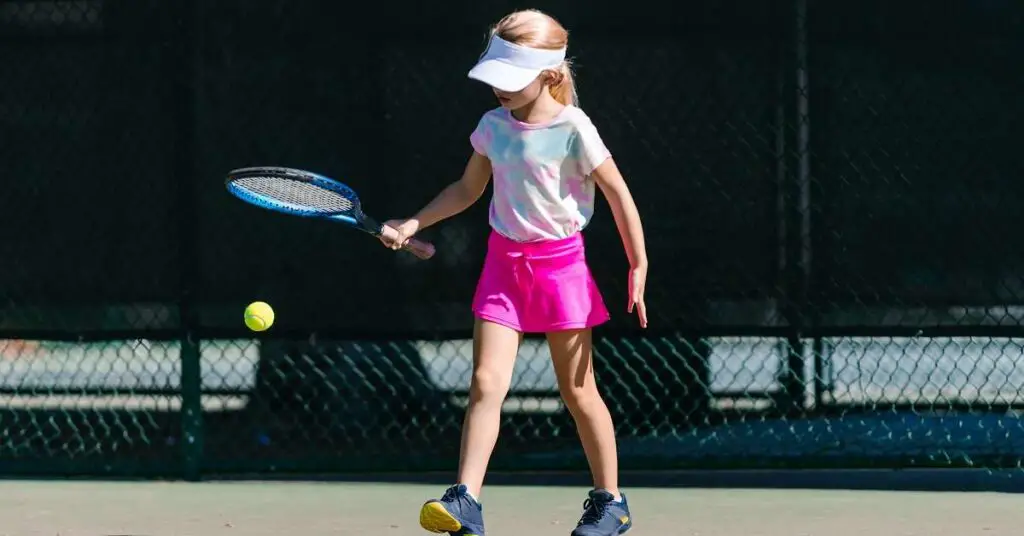
As a tennis parent, you have a lot of responsibilities. You are not only responsible for your child’s well-being, but you also have to support them emotionally and financially. With so many pressures, it’s easy to feel overwhelmed. Here are some tips for dealing with the pressures of tennis parenting:
1. Set Realistic Expectations
It’s important to set realistic expectations for your child. While you may want them to be the next Roger Federer or Serena Williams, it’s important to remember that not every child will become a professional tennis player. Instead, focus on helping your child reach their full potential and enjoy the sport.
2. Provide Emotional Support
Tennis can be a stressful and competitive sport, and your child may feel pressure to perform. As a tennis parent, it’s important to provide emotional support and encourage your child to have fun and enjoy the game. Let them know that you love them no matter what and that their worth is not determined by their performance on the court.
3. Don’t Compare Your Child to Others
Every child is unique and has their own strengths and weaknesses. It’s important not to compare your child to others and instead focus on their individual progress. Celebrate their successes, no matter how small, and encourage them to keep working hard.
4. Take Care of Yourself
Parenting a tennis player can be exhausting, both physically and emotionally. It’s important to take care of yourself so that you can be the best tennis parent possible. Make sure you are getting enough rest, eating well, and taking time for yourself. Remember, you can’t take care of your child if you’re not taking care of yourself.
5. Seek Help if Needed
If you’re feeling overwhelmed or struggling to cope with the pressures of tennis parenting, don’t be afraid to seek help. Talk to other tennis parents, coaches, or a mental health professional if needed. Remember, it’s okay to ask for help.
Parenting Resources for Tennis
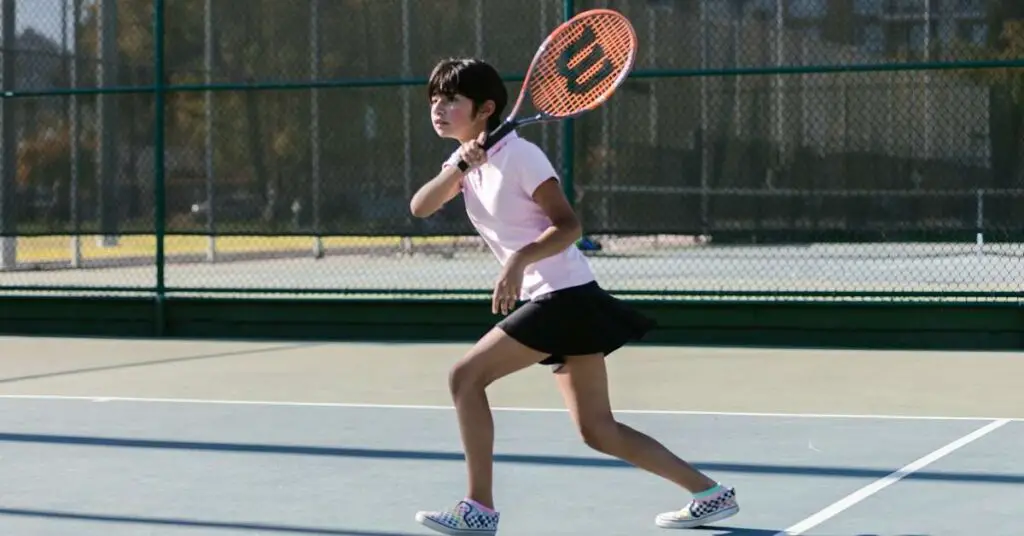
As a tennis parent, you may be wondering how to best support your child’s tennis dreams. Luckily, there are many resources available to help you navigate the world of junior tennis.
The United States Tennis Association (USTA) offers a variety of parent resources, including a Parent Support Guide that covers topics such as nutrition, injury prevention, and sportsmanship. The guide also provides tips for tennis parents on how to support their child’s development both on and off the court.
The USTA also offers a Player Development section on their website that includes resources on how to help support your child through their journey in the sport of tennis. This includes information on the development to the performance pathway and ensuring your child has a positive experience while competing in tennis.
In addition to these resources, there are many educational opportunities available for tennis parents. The USTA offers a Parenting Aces podcast and blog that covers a range of topics related to junior tennis. The site also includes a directory of tennis camps and academies that can help your child improve their skills.
If you are interested in pursuing a more formal education in tennis coaching, there are many PhD programs available that focus on sports science and coaching. These programs can provide you with a deeper understanding of the sport and how to best support your child’s development.
What are your thoughts on the best ways to support young tennis players? Do you have any tips for parents who are trying to navigate the world of junior tennis? Share your insights and experiences in the comments section below.

